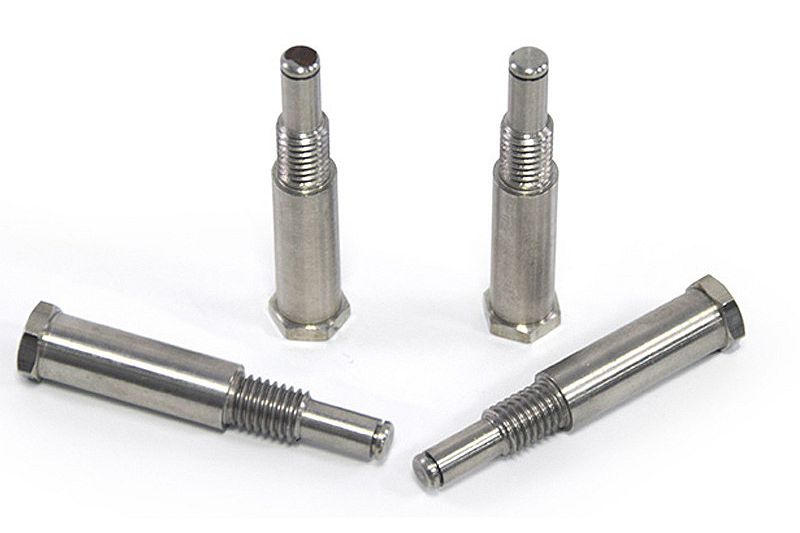Powering E-Mobility: How CNC Machining Enables High-Performance Electric Vehicles
Introduction
CNC machining has emerged as a vital enabler in the electric vehicle (EV) industry, delivering high-precision components that optimize EV performance, efficiency, and safety. With demand surging for cleaner, more sustainable transportation, CNC machining ensures meticulous precision and quality consistency critical for EV components.
EV manufacturers use advanced CNC machining manufacturing to create lightweight, durable, and complex vehicle parts. CNC machining supports breakthroughs in electric mobility, helping manufacturers innovate faster, boost vehicle range, and maintain superior reliability standards.
CNC Machining Steps
Design and Prototyping: Advanced CAD software develops precise component designs tailored for EV performance.
Material Selection: Optimal materials are chosen based on strength, weight, conductivity, and durability requirements.
Precision Manufacturing: CNC machines produce precise and intricate EV parts rapidly and consistently.
Quality Control: Extensive testing and inspection ensure component precision, quality, and compliance.
Materials: Material Solutions for Electric Vehicles
Selecting the right materials is essential for performance, safety, and efficiency in electric vehicle manufacturing. Common CNC machining materials for EV components include:
Material | Properties | Advantages | Applications |
|---|---|---|---|
Tensile Strength: 310-700 MPa Yield Strength: 280-500 MPa Density: 2.7 g/cm³ | Lightweight, strong, exceptional thermal conductivity, corrosion-resistant | Battery enclosures, motor housings, chassis components | |
Tensile Strength: 200-350 MPa Electrical Conductivity: 100% IACS Density: 8.96 g/cm³ | Superior electrical and thermal conductivity, durable and machinable | Battery connectors, charging system components, electric motor contacts | |
Tensile Strength: 900-1,200 MPa Yield Strength: 800-1,000 MPa Density: 4.43 g/cm³ | Outstanding strength-to-weight ratio, corrosion-resistant, high durability | Structural chassis components, lightweight suspension parts | |
Tensile Strength: 90-110 MPa Density: 1.32 g/cm³ High dielectric strength | Excellent electrical insulation, chemical resistance, lightweight | Battery pack insulators, high-voltage connectors, sensor housings |
Surface Treatment: Enhancing Electric Vehicle Component Durability
Anodizing
Functions: Anodizing increases aluminum components' corrosion resistance, thermal properties, and surface durability.
Key Features: Surface hardness up to 400 HV, enhanced corrosion protection.
Applications and Scenarios: Battery housing, motor cases, aluminum chassis parts.
Electropolishing
Functions: Electropolishing improves corrosion resistance, enhances electrical conductivity, and provides exceptional surface finishing.
Key Features: Surface roughness down to 0.1 µm, high purity, and smoothness.
Applications and Scenarios: Charging connectors, battery terminals, motor contact surfaces.
Powder Coating
Functions: Powder Coating provides protective finishing against corrosion, abrasion, and environmental conditions.
Key Features: Uniform coating (50-120 µm), durable and resilient.
Applications and Scenarios: EV structural frames, exterior battery pack casings, electric drivetrain components.
Thermal Barrier Coatings
Functions: Thermal Barrier Coatings offer insulation to reduce heat transfer, protecting EV components from thermal degradation.
Key Features: Withstands temperatures up to 1,300°C, effective thermal insulation.
Applications and Scenarios: Electric motor components, power electronics housings, battery thermal management systems.
CNC Machining Process Comparison
Distinct CNC machining processes provide specific advantages tailored to electric vehicle component requirements:
Process | Key Features | Application Scenarios |
|---|---|---|
Precision: ±0.0025 mm Advanced multi-axis capability for intricate shapes | Motor casings, battery pack structures, precision chassis components | |
Precision: ±0.0025 mm Highly efficient for cylindrical or rotational components | Motor shafts, cylindrical battery casings, high-precision connectors | |
Precision: ±0.0025 mm hole accuracy Capability for deep-hole drilling | Structural frames, cooling channels, battery management systems | |
Surface finish: up to 0.1 µm Superior dimensional accuracy and surface quality | Precision bearing surfaces, gearbox parts, rotor shafts | |
Precision: ±0.0025 mm, flexible multi-directional production capabilities | Complex battery enclosures, aerodynamic, structural components, sophisticated suspension parts |
Considerations in Production
Thermal Stability: Precise temperature management and thermally stable materials selection to minimize distortion.
Tight Tolerances: Continuous machine calibration and rigorous inspection protocols for high-precision requirements.
Material Compatibility: Material choices that optimize electrical conductivity, durability, weight reduction, and corrosion resistance.
Surface Integrity: Application-specific surface treatments to protect against corrosion, enhance electrical performance, and extend component life.
Industry and Applications
CNC machining is fundamental across various sectors linked to electric vehicle innovation:
Automotive: High-performance EV powertrains, chassis systems, electric motors.
Power Generation: Electric vehicle charging systems, energy storage housings.
Industrial Equipment: High-precision manufacturing equipment for EV components.
Robotics & Automation: Advanced robotics for electric vehicle assembly lines.
Consumer Products: Electric scooters, personal electric mobility devices, smart charging stations.
FAQs
How does CNC machining enhance the performance of electric vehicles?
What are the essential materials CNC-machined for electric vehicle components?
Which CNC machining processes are most effective for electric vehicle manufacturing?
What role do surface treatments play in enhancing EV component durability?
Why is CNC machining critical for innovation in the electric vehicle industry?

